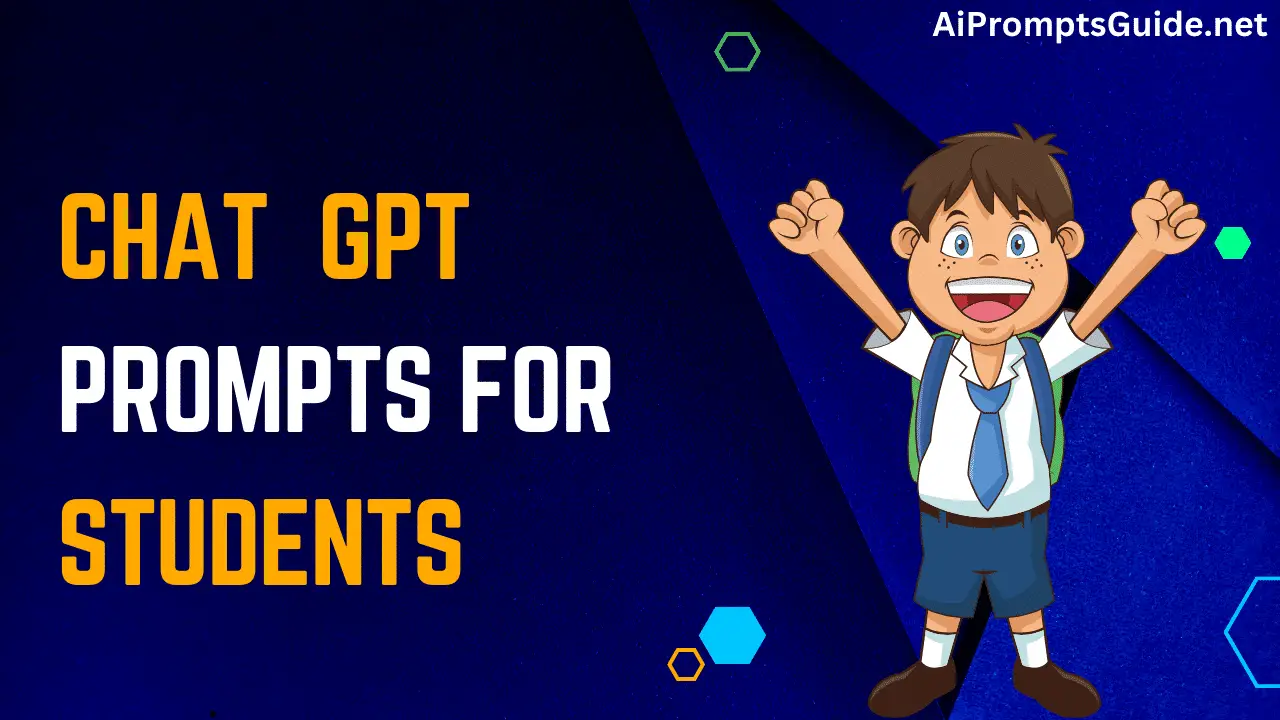In today’s digitally-driven world, education is evolving rapidly, with technology playing a pivotal role in transforming traditional classroom settings into innovative and engaging learning environments.
One such technological marvel that has found its way into the classrooms of the 21st century is ChatGPT, a powerful language model developed by OpenAI.
ChatGPT has proven to be a valuable tool for students, offering a myriad of advantages and opportunities to enhance their learning experience. However, like any technology, it also comes with its own set of disadvantages.
This article explores the world of ChatGPT in the classroom and provides 50 prompts, categorized into five different classroom-related challenges students commonly face.
Before we dive into these prompts, let’s take a closer look at the advantages and disadvantages of integrating ChatGPT into the classroom.
Advantages of Using ChatGPT in the Classroom
Instant Access to Information
ChatGPT provides students with immediate answers to their questions, promoting self-directed learning.
Enhanced Collaboration
It fosters collaborative learning by allowing students to brainstorm ideas and work on projects together.
Personalized Learning
ChatGPT tailors responses to individual student queries, catering to diverse learning styles.
24/7 Availability
Students can seek assistance or clarification at any time, eliminating time constraints.
Language Proficiency
ChatGPT helps improve language and writing skills by providing grammar and style suggestions.
Disadvantages of Using ChatGPT in the Classroom
Dependence on Technology
Overreliance on ChatGPT may hinder critical thinking and problem-solving skills.
Plagiarism Risk
Students might misuse ChatGPT to generate plagiarized content instead of creating their own.
Lack of Emotional Intelligence
ChatGPT lacks empathy and emotional understanding, making it unsuitable for addressing sensitive issues.
Potential for Inaccuracies
While powerful, ChatGPT is not infallible and can provide incorrect information.
Privacy Concerns
Using ChatGPT may raise privacy issues related to data collection and storage.
ChatGPT Prompts For Student
Now, let’s explore the ChatGPT prompts, categorized under five different classroom-related challenges faced by students:
Research and Information Gathering
- “Can you please elaborate on the events that happened during World War I in chronological order?”
- “Find recent statistics on climate change effects.”
- “Summarize the key findings of the latest neuroscience research.”
- “List famous literary works by Shakespeare and their themes.”
- “Explain the principles of Newton’s laws of motion.”
Writing and Composition
- “Help me brainstorm ideas for my essay on renewable energy.”
- “Suggest a captivating introduction for an essay on the topic “Hardwork is key to success”.
- “Proofread my history research paper on World War and its consequences on third-world countries and suggest improvements.”
- “Generate a thesis statement for an argumentative essay on social media.”
- “Suggest a body of a letter to the principal complaining about the unclean toilets of the campus.”
Mathematics and Problem Solving
- “Solve this quadratic equation: x^2 – 5x + 6 = 0.”
- “Calculate the volume of a cone with a given radius and height.”
- “Help me understand the Pythagorean theorem and its application in current scenario.”
- “Suggest resources for practicing algebra.”
Language Learning and Communication
- “Translate this English sentence into French.”
- “Teach me common conversational phrases that are commonly used in Spanish.”
- “Explain the difference between ‘affect’ and ‘effect’.”
- “How can I improve my pronunciation in Mandarin Chinese?”
- “Help me compose a professional email in German.”
Test Preparation and Study Tips
- “Give me tips for effective time management during exams.”
- “Create a study schedule for my upcoming biology final also include break time and sleep time.”
- “Explain strategies for acing multiple-choice questions.”
- “Share techniques for reducing test anxiety.”

Ideas on Science Projects
- “Suggest a science project idea related to environmental conservation that would be displayed in a science exhibition”.
- “Provide an idea for a model that demonstrates Law of motion.”
- “Give me suggestions on what household materials could be used for a chemistry experiment that explores chemical reactions.”
- “Propose a biology project idea that shows plants are living beings”
- “Share an idea for a technology-related science project that involves building a simple gadget or conducting research on a tech-related topic.”Top of Form
Sports related challenges
- “Share tips on improving mental resilience and focus for better sports performance.”
- “Provide guidance on creating a personalized workout routine for increasing strength and agility in basketball.”
- “Suggest strategies for managing sports-related injuries and the road to recovery.”
- “Offer advice on keeping a balance between academics and sports commitments for student-athletes.”
- “Share nutrition tips and dietary guidelines for optimizing athletic performance.”
For Creating a Good Resume
- “Provide a step-by-step guide to creating an impactful resume, following the right format.”
- “Give advice on tailoring a resume to a specific job posting or industry, including keywords and skills.”
The Final Words
ChatGPT has undoubtedly opened up new avenues for students to enhance their learning experience. It offers instant access to information, fosters collaboration, and provides personalized support.
However, it is crucial to use this technology responsibly, avoiding overreliance and potential pitfalls such as plagiarism and privacy concerns.
As educators and students continue to explore the possibilities of ChatGPT, it is essential to strike a balance between leveraging its benefits and preserving the essential aspects of human learning, critical thinking, and creativity.
With the right guidance, ChatGPT can be a valuable addition to the modern classroom toolkit.


